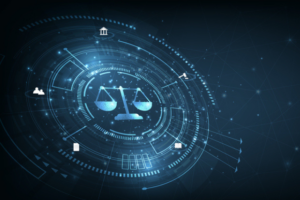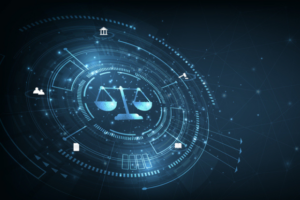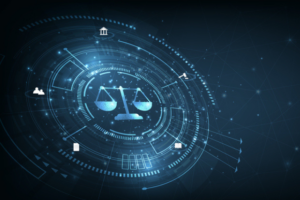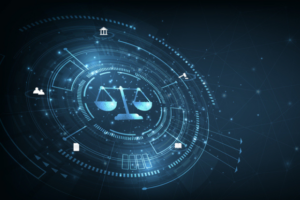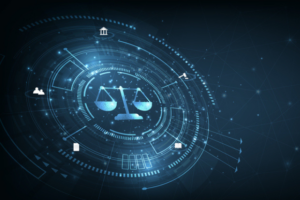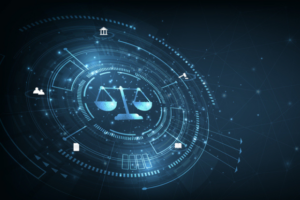The
emotional
aspect
of
IP
enforcement
can
never
be
overstated,
especially
among
the
creative
types
that
help
drive
our
economy
and
society
forward.
What
is
true
for
the
IP
owners
trying
to
assert
their
rights
is
also
just
as
true
for
those
finding
themselves
the
enforcement
targets,
a
dynamic
which
makes
our
little
slice
of
the
legal
profession
so
interesting
and
exciting
to
practice
in.
And
as
we
have
seen
before,
adding
in
a
little
bit
of
celebrity
spice
will
often
help
drive
an
IP
enforcement
tale
into
the
mainstream
media,
particularly
when
the
issues
involved
are
connected
to
branding
around
familiar
products.
In
just
the
latest
example,
the
past
week
has
seen
hardcore
IP
media
outlets
like
the
Today
show
focus
in
on
celebrity
chef
(and
previous
star
of
this
column)
David
Chang’s
abortive
attempt
at
assertion
of
a
“Chile
Crunch”
trademark
in
connection
with
his
popular
Momofuku
Chili
Crunch
chili
oil.
What
probably
was
thought
of
as
a
routine
sending
of
cease
and
desist
letters
to
comply
with
the
requirement
of
trademark
owners
to
police
their
marks
took
a
nasty
turn,
with
allegations
of
cultural
misappropriation
and
threats
of
boycott
presaging
a
public
apology
by
Chang
in
short
order.
As
is
often
the
case,
the
story
actually
starts
a
lot
earlier.
For
one,
this
is
not
the
first
time
that
Momufuku
has
turned
to
IP
lawyers
to
help
preserve
its
rights.
In
2022,
it
sent
a
number
of
cease
and
desist
letters
to
a
competitor
restaurant
business,
Yuzu
Kitchen,
based
on
Yuzu’s
use
of
a
peach
logo
that
Momofuku
—
which
translates
to
“lucky
peach”
—
took
offense
to.
Those
letters
were
followed
by
a
complaint
filed
in
the
SDNY,
but
the
case
settled
before
any
substantive
action
took
place.
Still,
my
column
summarizing
a
Chang
podcast
from
a
year
later
noted
Chang’s
expressed
“frustration
at
what
he
calls
the
‘rampant
theft’
in
the
food
industry,
which
he
compares
to
the
struggles
that
fashion
houses
have
in
dealing
with
‘fast
fashion’
competitors
like
Zara
and
others.”
That
frustration
may
have
also
been
informed
by
Chang’s
experience
on
the
receiving
end
of
IP
assertion.
Also
in
2022,
Chang
saw
Momufuku’s
Chili
Crunch
product,
which
was
launched
in
2020,
the
subject
of
a
trademark
lawsuit
of
its
own.
Chile
Colonial,
the
owner
of
a
registered
“Chile
Crunch”
mark,
filed
a
District
of
Colorado
lawsuit
against
Momofuku
in
late
August
2022,
only
to
see
Momofuku
purchase
that
mark
in
settlement
in
March
2023.
A
year
later,
the
company
filed
a
trademark
application
for
the
“Chili
Crunch”
mark
as
well,
in
parallel
with
the
sending
of
cease
and
desist
letters
to
a
set
of
companies
selling
Chili
Crunch
products,
with
the
majority
of
recipients
“small
brands
founded
by
Asian
Americans.”
The
backlash
was
immediate,
with
Chang
finding
himself
branded
a
trademark
bully,
with
a
lawyer
for
one
of
the
letter
recipients
accusing
him
of
“picking
on
small
businesses
with
a
letter
campaign
hoping
they’ll
cave
because
of
the
financial
pressure.”
Making
matters
worse,
Chang
was
accused
by
his
fellow
Asian
American
food
purveyors
of
delivering
a
“punch
in
the
gut”
through
his
legal
action.
Initially,
Momofuku
tried
to
counter
the
charges
by
explaining
that
it
had
to
take
action
due
to
the
legal
requirement
that
trademark
owners
police
their
marks.
That
explanation,
while
legally
correct,
was
not
well-received
by
those
complaining
about
the
situation.
As
a
result,
the
company
was
forced
to
acknowledge
that
the
“situation
has
created
a
painful
divide
between
Momofuku,
the
AAPI
community
we
care
deeply
about,
and
other
companies
sharing
grocery
store
shelves.
But
the
truth
is,
we
all
want
the
same
things:
to
grow,
to
succeed
and
to
make
America’s
pantries
and
grocery
stores
a
more
diverse
place.”
Once
again,
Chang
found
himself
let
down
by
the
legal
process
when
it
came
to
IP
issues.
Not
only
was
he
forced
to
purchase
the
trademark
to
protect
himself,
but
he
was
unable
to
utilize
the
mark
he
purchased
to
position
his
company’s
interests
in
a
more
favorable
way
from
a
trademark
perspective.
Under
the
circumstances,
what
I
wrote
about
his
IP
comments
last
year
rings
true
—
namely,
that
Chang’s
“status
as
an
IP
owner
has
not
cooled
his
frustration
at
the
lack
of
respect
for
IP
in
the
food
industry
[…]
especially
when
he
sees
innovators
in
other
industries
rewarded
through
workable
mechanisms
for
balancing
access
to
IP
protected
material
and
the
need
to
foster
additional
innovation.”
At
the
same
time,
there
should
have
been
at
least
some
expectation
on
his
end
that
targeting
small
businesses
owned
by
others
sharing
his
ethnic
background
might
have
met
a
cool
reception
in
the
court
of
public
opinion.
Ultimately,
it
is
hard
not
to
sympathize
with
a
business
owner
like
Chang,
who
has
already
been
upfront
about
his
struggles
in
navigating
the
complex
IP
legal
landscape.
Thankfully
for
him,
however,
he
can
afford
high-quality
legal
representation,
as
well
the
full
menu
of
legal
options
available
to
protect
his
rights
on
both
the
offensive
and
defensive
sides
of
the
IP
ledger.
For
smaller
companies
in
his
industry,
be
they
other
restaurants
or
food
wholesalers,
that
same
luxury
is
not
available.
But
as
seen
in
the
Chili
Crunch
conflagration,
the
power
of
the
public
can’t
be
underestimated
—
and
in
fact
can
act
as
a
great
equalizer
for
those
facing
aggressive
action
at
the
hands
of
a
trademark
bully.
This
will
not
be
the
last
time
an
erstwhile
trademark
enforcer
will
be
bounced
out
of
the
kitchen.
Please
feel
free
to
send
comments
or
questions
to
me
at
gkroub@kskiplaw.com
or
via
Twitter:
@gkroub.
Any
topic
suggestions
or
thoughts
are
most
welcome.
Gaston
Kroub
lives
in
Brooklyn
and
is
a
founding
partner
of
Kroub,
Silbersher
&
Kolmykov
PLLC,
an
intellectual
property
litigation
boutique,
and Markman
Advisors
LLC,
a
leading
consultancy
on
patent
issues
for
the
investment
community.
Gaston’s
practice
focuses
on
intellectual
property
litigation
and
related
counseling,
with
a
strong
focus
on
patent
matters.
You
can
reach
him
at gkroub@kskiplaw.com or
follow
him
on
Twitter: @gkroub.






 Kathryn
Kathryn


